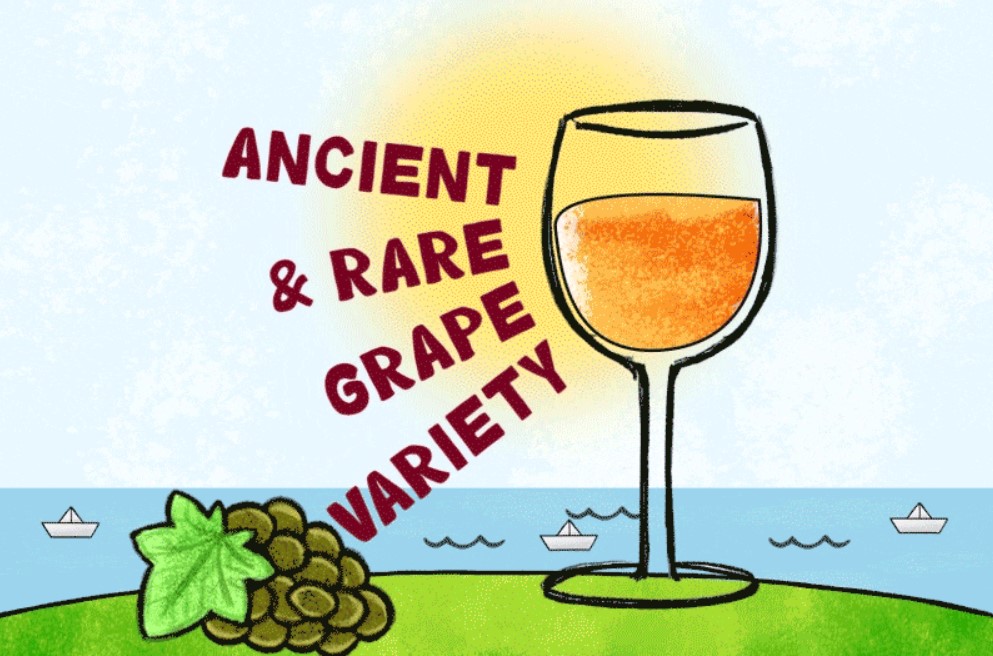September 15, 2023 – As Wine&more writes, in the world of wines, there exists a hidden gem, a true enigma that has long eluded the spotlight. Let us introduce you to Vugava, an exceptional treasure hailing from the sun-drenched Dalmatian island of Vis.
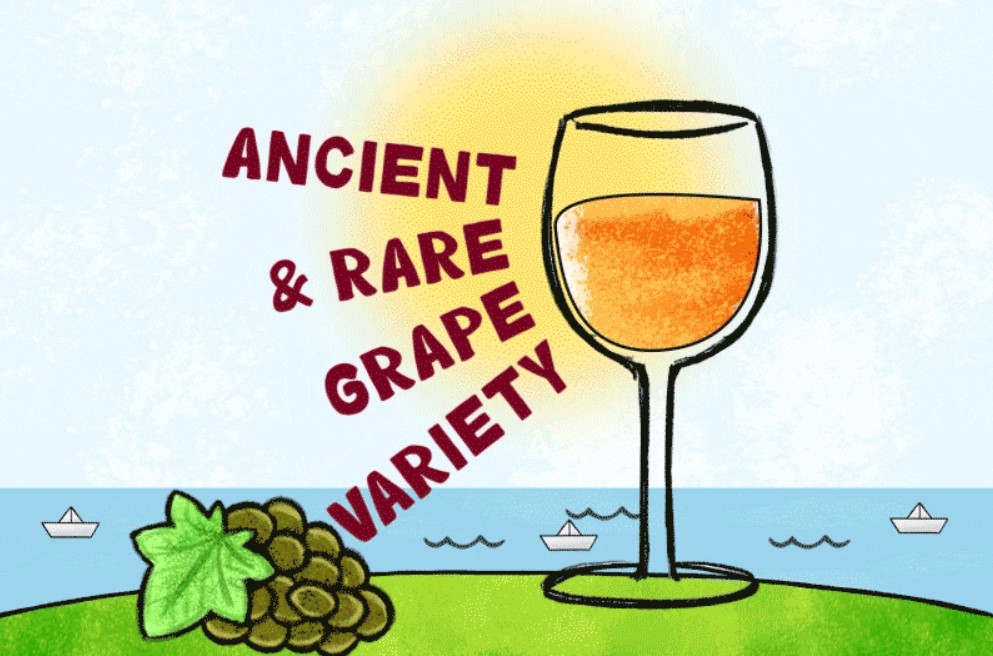
The Enigmatic Origins of Vugava
Vugava, sometimes referred to as Bugava, has deep roots intertwined with the history of Dalmatia, particularly the island of Vis.
Its story stretches back to ancient times when Greek settlers first planted vines on this picturesque island. Intriguingly, the name “Vugava” is believed to be derived from the Greek word “voukavos,” denoting a place inhabited by owls.
For a considerable period, there was a misconception that Vugava (Bugava) was actually the renowned white Rhone variety Viognier.
However, DNA profiling definitively disproved any connection between the two, offering a delightful revelation for biodiversity enthusiasts. Vugava emerged as an indigenous variety with no known ties to other grape varieties.
The true origin of Vugava remains shrouded in mystery. Available data suggests it is cultivated nowhere else in the world, firmly establishing it as a Croatian autochthonous variety.
Vugava has thrived on Vis for centuries, and many trace its existence back to the earliest mention of wine from Croatian territory in a document dating back to the 2nd century BC.
This implies its presence during the Greek colonization of the Adriatic in the 4th to 6th centuries BC or its creation during their rule.
A Unique vis Island Terroir
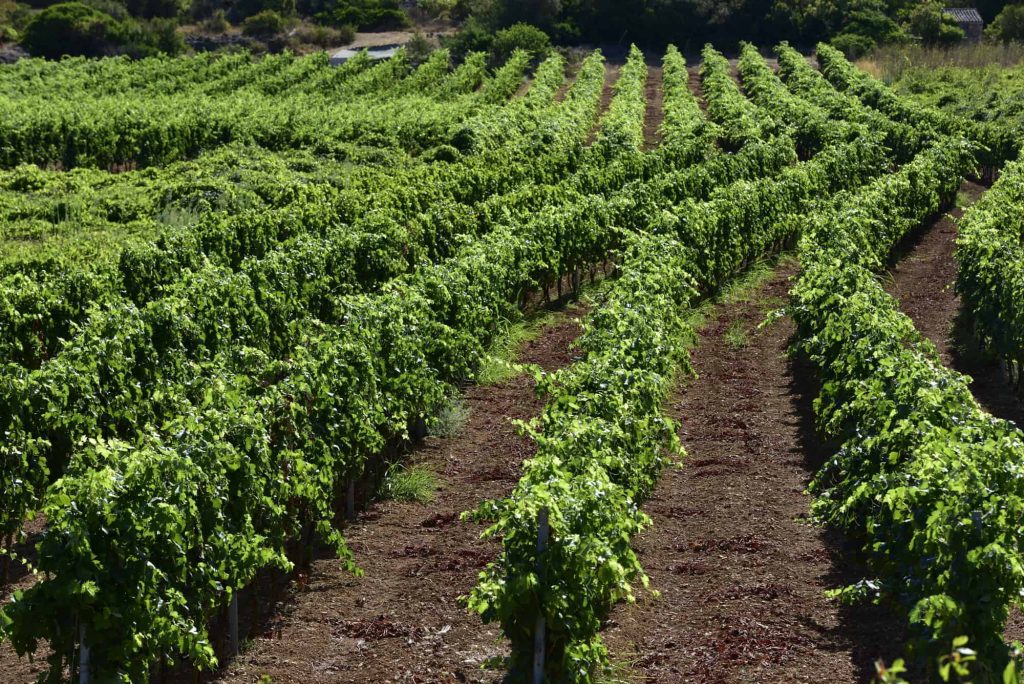
One of the defining features of Vugava lies in its exceptional terroir. The Dalmatian islands provide the perfect setting for this grape variety to flourish.
The combination of abundant sunshine, refreshing sea breezes, and limestone-rich soils imparts distinct flavors to the grapes, culminating in a wine that embodies the essence of the Mediterranean.
Unlike the renowned vineyard positions in Dalmatia, where steep slopes overlook the sun-drenched Adriatic, such as Dingač, Postup, or Mili on the Pelješac peninsula, Ivan Dolac on Hvar Island, and Murvica on Brač Island, Vis hides its vine treasures inland. Vis boasts numerous fields ideally suited for agriculture, and Vugava is no exception.
It thrives in the superior Mediterranean terroir, particularly in Dračevo polje, a location between Komiža and Vis town that harbors most of the world’s Vugava.
This brown soil, formed on Cretaceous dolomite and limestone with sand influencing the topsoil, is home to the majority of Vugava vines.
In fact, there are only 15 hectares of Vugava in the world, with 14 hectares thriving here.
The Flavor of Vugava
The Vugava variety boasts exceptional qualitative potential, often accumulating high sugar content (18-24°B) while maintaining low acidity (4.0-5.5 g/l).
Vugava is not just renowned; it is the most recognizable white variety on Vis, adored for its stunning appearance and delectable edibility.
While it has been used as a top-quality grape, its dessert wine, made from sun-dried grapes, has been particularly cherished.
Vugava remarkable characteristics have firmly established it as one of Vis’s most significant grape varieties today.
What sets Vugava apart is its aromatic profile. This wine offers a symphony of tropical fruit notes, yet it remains far from ordinary when handled with care.
Descriptors such as ripe apricots, citrus, and a subtle hint of pineapple resonate with many Vugava wines. These vibrant aromas are often accompanied by delicate floral and herbal undertones.
However, what truly distinguishes Vugava is its unique aromatic profile, combined with a structural elegance that sets it apart from other varieties.
Its exquisite natural golden-yellow hue releases a specific varietal fragrance. The intensity is subtle yet pleasant, manifesting as deep and full on the palate.
Moreover, Vugava is exceptionally easy to savor, especially with modern winemaking techniques. Its honeyed touch and luxurious fullness emerge, making it a sensory delight.
What makes Vugava truly special is its refreshing palate. The wine’s crisp, zesty character makes it an ideal companion for seafood dishes, especially the abundant catches from the Adriatic Sea.
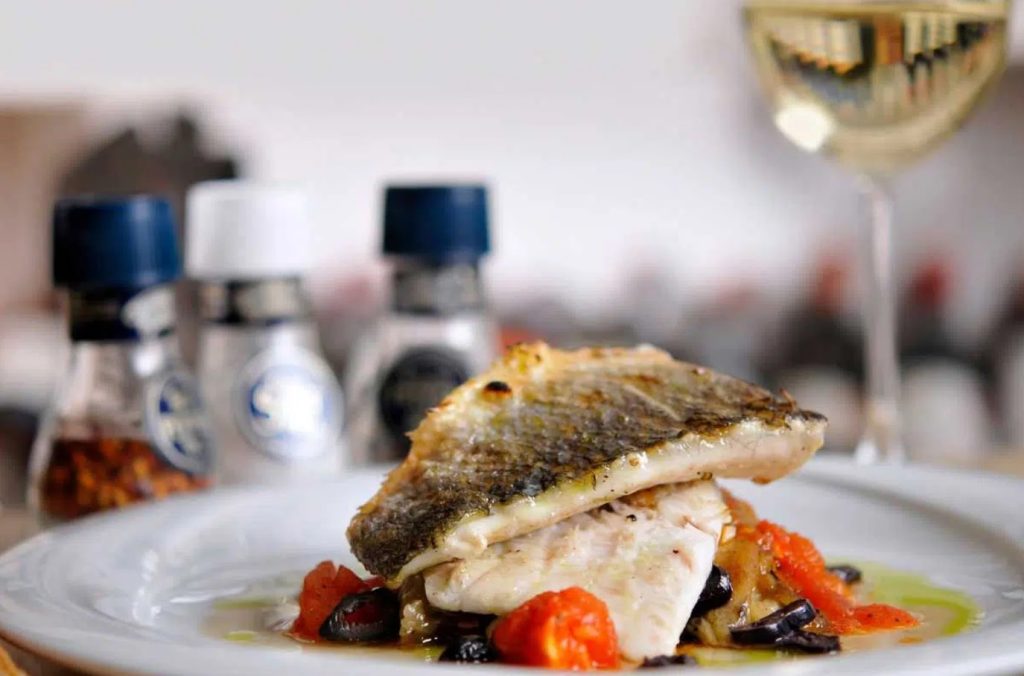
Its vibrant acidity acts as a palate cleanser, leaving behind a memorable and thirst-quenching experience.
Vugava has the potential to age gracefully. It can be vinified under microoxygenation conditions, aged in wooden barrels, and undergo wood aging.
It excels in these processes, maintaining its refreshing character while enhancing its primary aromatics. This ability to refresh with pronounced primary aromatics while expressing its essence is a hallmark of the finest wines.
Wine Production and Wineries
Vugava production follows a tradition handed down through generations. Many wineries on the Dalmatian islands take pride in preserving these age-old methods.
Grapes are hand-harvested, and the wine often matures in oak barrels, adding depth and complexity to the final product.
Modern-day Vugava epitomizes the careful preservation of traditional varietal expression. Regardless of the vinification method, Vugava reveals its unique qualities when crafted with thoughtfulness and respect for its heritage.
Vugava winemaking is typically associated with boutique, family-run wineries. These producers adopt a hands-on approach to winemaking, fashioning limited quantities of wine with meticulous care and attention to detail.
In essence, Vugava wine’s traditional craftsmanship reflects the dedication of winemakers who strive to create wines capturing the essence of the Dalmatian islands while adhering to time-honored and artisanal winemaking practices.
Several wineries on the island of Vis have gained renown for their Vugava wines, along with one from the Island of Brač:
- Vislander,
- Lipanović,
- Roki’s,
- Senjanović,
- Ivčević-Cobo,
- Stina.
In recent years, Vislander Winery has achieved the most compelling interpretations of this variety. Vislander stands as the sole winery using Vugava for sparkling wine and crafting two versions of still white wine: Komiška Bonda and Bugava, along with Bugava Antique.
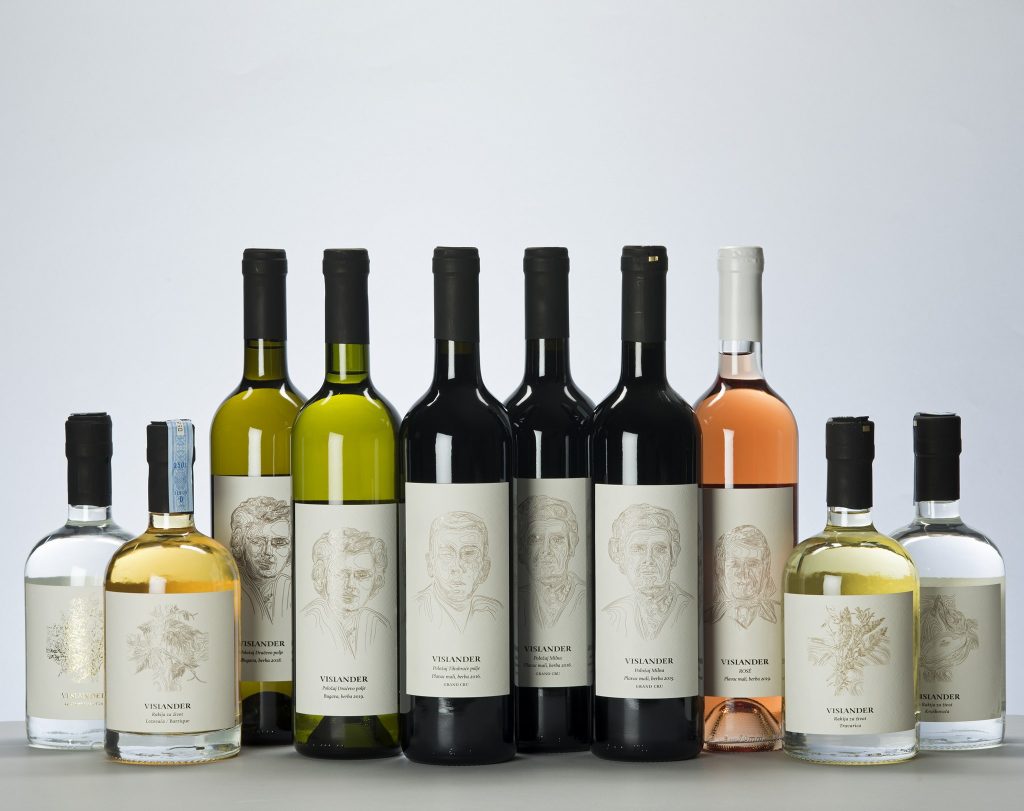
Additionally, in a blend with the Kuč variety, it produces a simple yet delightful everyday wine, Cuvee. Vislander owns 15 hectares of vineyards, encompassing Plavac Mali, Vugava, Kuč, and other old white varieties such as Kurtelaška and Rukatac.
vugava food pairing
Vugava’s versatility shines as a refreshing aperitif when paired with seafood, Mediterranean cuisine, or even enjoyed on its own.
Its capacity to complement diverse flavors has endeared it to discerning food and wine enthusiasts.
Although it leans toward lighter-bodied wines, Vugava harmonizes well with more substantial dishes than just seafood.
Its aromatic nature aligns beautifully with sea fish, especially grilled white fish, or the traditional octopus “ispod peke” with potatoes. Vugava’s refreshment complements these dishes effortlessly, delivering a delightful synergy.
While Vugava pairs splendidly with a wide array of dishes, some cuisines may not do justice to its distinctive characteristics. Here are examples of dishes that might not be the best match for Vugava:
- Heavy red meats: Vugava’s crispness is ideal for lighter meats and seafood. Heavy red meats, such as steaks or rich stews, may overpower the wine and fail to complement its delicate flavors.
- Extremely spicy foods: While Vugava can balance some spice, intensely spicy dishes may not be the best match, as they can overshadow the wine’s subtleties.
- Creamy sauces: Creamy sauces like Alfredo or heavy béchamel might not be the best choice, as they can overwhelm Vugava’s freshness and alter its aromatic signature. Lighter, citrus-infused sauces may fare better.
Most Vugava wines are best enjoyed when chilled, typically served between 10 to 12 degrees Celsius (50-54°F). This temperature range allows its vibrant flavors and acidity to shine, creating a perfect accompaniment for seafood and light Mediterranean dishes.
Even aged Vugava or Vugava wines with prolonged skin contact, displaying a more rustic and traditional style, can be served at slightly higher temperatures, starting at 12°C (54°F) in a glass.
Can Vugava Be Aged?
Yes, Vugava can be aged, though it’s important to note that Vugava is typically celebrated for its fresh character when consumed young.
Nevertheless, some wineries produce aged versions of Vugava, offering a different and more complex flavor profile.
If you come across an aged Vugava, it’s worth exploring. These wines may have undergone oxidative aging, which can add depth and richness to the wine.
Be sure to check the label or consult the winery for specific recommendations regarding the aging and serving of the particular Vugava you have.
Where to Find Vugava Wines Outside Croatia
Globally, Vugava remains relatively obscure due to its limited production. Nevertheless, Vugava serves as a testament to the beauty of versatility and biodiversity in the world of wines.
Wine&more stands as one of the few online retailers offering Vugava from Vis to the EU, US, UK, and other countries.
To discover Vugava in your area, consider researching local wine importers or distributors specializing in Croatian wines or those from the Dalmatian region. They may provide valuable information on where to find Vugava wines near you.
conclusion
Vugava is a testament to centuries of winemaking tradition on the stunning islands of Dalmatia.
Its rich history, distinct characteristics, and burgeoning global popularity make it a must-try for wine connoisseurs.
Vugava is more than just a wine; it’s a journey through Dalmatia’s captivating history and breathtaking landscapes. Whether you are an avid wine collector or a casual enthusiast, Vugava promises a taste of the Mediterranean like no other.
So, the next time you yearn for a sip of the Mediterranean in a glass, consider reaching for a bottle of Vugava – a wine that encapsulates the beauty of Dalmatia.
NOTE: The article was originally written at wineandmore.com

